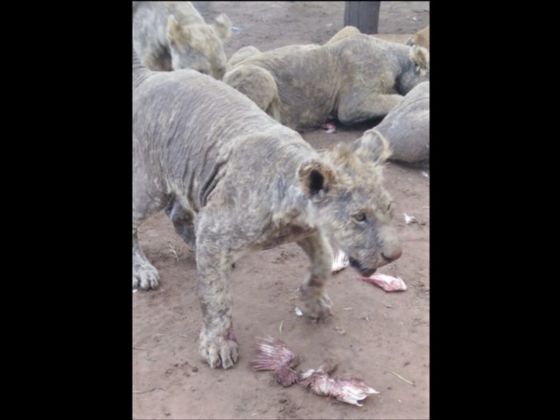After an anonymous tipster reached out to a journalist, one of the most shocking cases of animal neglect ever recorded has been discovered in South Africa. Over 100 lions and other animals were found diseased, overcrowded, and near death in a captive-breeding facility in the country’s North West province.
Following the tip, the National Council for Societies for the Prevention of Cruelty to Animals visited the facility, located at Pianika Farm, and found 27 lions afflicted with a severe case of mange. The animals were being housed in dirty, overcrowded enclosures, and at least three cubs were suffering from a neurological condition called meningoencephalitis — an inflammation of the brain that left them unable to walk.
